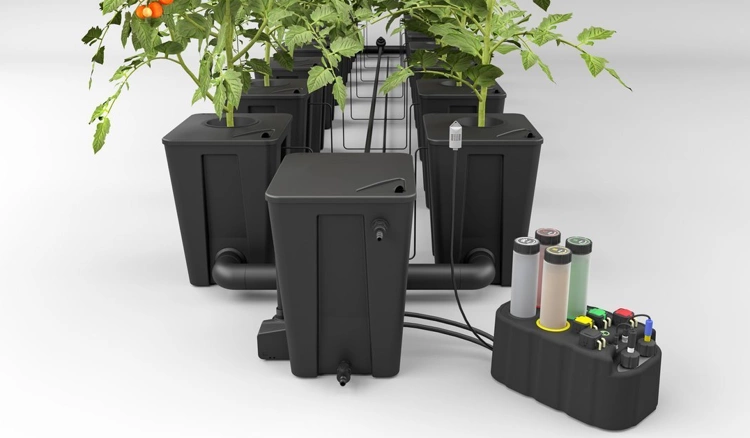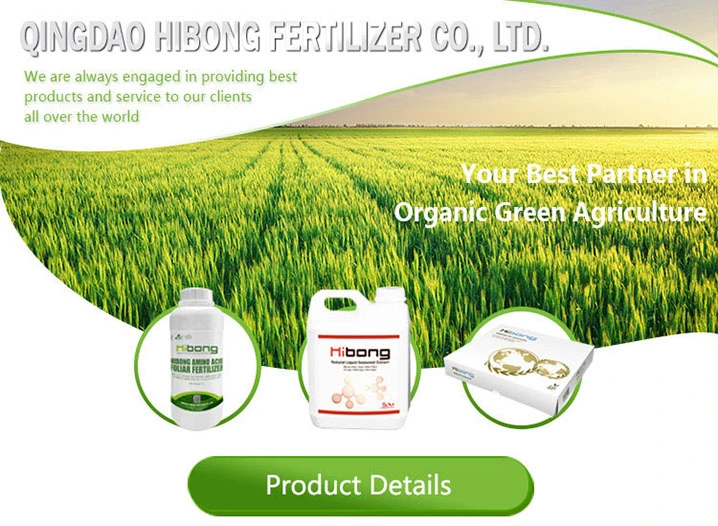Are you looking to improve your best fertilizer for hydroponics garden’s yield and overall health? Look no further than the right fertilizer! In this article, we will explore everything you need to know about choosing the best fertilizer for your hydroponic setup. From understanding the different types of fertilizers to knowing how to properly use them, we’ve got you covered. So let’s dive in and discover the secrets to successful hydroponic gardening.
Understanding Hydroponic Fertilizers

Hydroponics is a unique method of growing plants without soil. Instead, plants are grown in nutrient-rich solutions or inert mediums such as gravel, sand, or rock wool. In this environment, plants require a constant supply of essential nutrients to grow and thrive. This is where fertilizers come into play. They provide the necessary nutrients to support healthy plant growth.
When it comes to hydroponic fertilizers, there are three main types: liquid, powder, and organic. Liquid fertilizers are the most commonly used as they are easy to apply and quickly absorbed by the plants. Powder fertilizers, on the other hand, need to be dissolved in water before use. Lastly, organic fertilizers are derived from natural sources and can be either liquid or powder form.
How to Use Hydroponic Fertilizers
Now that we know the different types of fertilizers, let’s understand how to use them effectively. The key to using fertilizers in hydroponics is to follow the instructions provided by the manufacturer carefully. Most liquid fertilizers need to be mixed with water in a specific ratio before being applied to the plants. Similarly, powder fertilizers must be dissolved in water before use.
It is essential to monitor the pH levels of your nutrient solution regularly. Ideally, the pH should be between 5.5-6.5 for optimal nutrient absorption. If the pH is too high or too low, it can affect the plants’ ability to absorb nutrients, leading to deficiencies.
When using organic fertilizers, it is crucial to ensure that they are well-composted and free of any harmful bacteria. These fertilizers should also be used in moderation as they release nutrients slowly over time. Overuse of organic fertilizers can result in nutrient buildup and cause harm to your plants.
Comparing Different Types of Fertilizers

Now that we understand the different types of fertilizers and how to use them, let’s compare their pros and cons.
Liquid Fertilizers
Pros:
- Easy to use and quick to absorb by plants.
- Precise application with specific dosages.
- Can be customized for different stages of plant growth.
- Suitable for all hydroponic systems.
Cons:
- More expensive than powder or organic fertilizers.
- Can have a strong odor.
- Can clog irrigation systems if not filtered properly.
Powder Fertilizers
Pros:
- Less expensive than liquid fertilizers.
- Can be purchased in bulk, making them cost-effective for large-scale operations.
- Easy to store and transport.
Cons:
- Can be messy during mixing.
- Requires proper filtration before application.
- Not suitable for drip irrigation systems.
Organic Fertilizers
Pros:
- Environmentally friendly and sustainable.
- Slow-release of nutrients provides long-term feeding for plants.
- Improves soil health and microbial activity.
Cons:
- More expensive compared to liquid and powder fertilizers.
- Nutrient levels may vary from batch to batch.
- Can attract pests if not stored properly.
Top Picks for Best Fertilizer for Hydroponics

Now that we understand the different types of fertilizers and their pros and cons, let’s take a look at some of the best fertilizers for hydroponics available in the market.
- General Hydroponics Flora Series The Flora series by General Hydroponics is a popular choice among hydroponic gardeners. It comes in three parts – Grow, Bloom, and Micro – to provide the necessary nutrients at different stages of plant growth. This liquid fertilizer is highly concentrated and should be mixed with water as per the instructions provided.
- Botanicare Pure Blend Pro Grow This organic fertilizer contains a blend of natural ingredients, including seaweed extract, fishmeal, and composted seabird guano. It provides essential macro and micronutrients for healthy plant growth. It is suitable for all hydroponic systems and can also be used in soil-based gardens.
- MasterBlend 4-18-38 Complete Hydroponic Fertilizer If you are looking for a budget-friendly option, then MasterBlend 4-18-38 is an excellent choice. This powder fertilizer is highly concentrated and needs to be mixed with Calcium Nitrate and Magnesium Sulfate to create a complete nutrient solution. It is suitable for all hydroponic systems and can be easily purchased in bulk.
Tips and Advice for Using Fertilizers in Hydroponics
- Start with a balanced nutrient solution and make adjustments as needed.
- Monitor pH levels regularly and adjust accordingly.
- Always follow the instructions provided by the manufacturer.
- Gradually increase the strength of your nutrient solution to avoid shocking the plants.
- Flush your system every few weeks to prevent nutrient buildup.
- Keep in mind that each plant has different nutrient requirements, so it’s essential to research and understand their needs before using fertilizers.
FAQs about Best Fertilizer for Hydroponics

What is the best fertilizer to use in hydroponics?
The best fertilizer to use in hydroponics depends on several factors, including the type of plants, the stage of growth, and your budget. It’s essential to research and understand your plants’ unique nutrient requirements before choosing a fertilizer.
How often should I fertilize my hydroponic plants?
The frequency of fertilization will depend on the type of fertilizer you are using. Liquid fertilizers are usually applied with every watering, while powder or organic fertilizers need to be mixed in every few weeks.
Can I use regular fertilizers in hydroponics?
No, regular fertilizers are designed for soil-based gardening and may not contain all the necessary nutrients for hydroponic plants. It is best to use specific hydroponic fertilizers for optimal plant growth.
Can I make my own hydroponic fertilizer?
Yes, you can make your own hydroponic fertilizer using natural ingredients such as compost, worm castings, or seaweed extract. However, it may not provide a complete nutrient profile, so it’s crucial to monitor your plants’ overall health.
How do I know if my plants are getting enough nutrients?
Monitoring the overall health and growth of your plants is the best way to determine if they are receiving enough nutrients. Signs of nutrient deficiencies include slow growth, yellowing leaves, and stunted development.
Conclusion
Hydroponics is a popular method of growing plants without soil, using water and nutrients instead. This technique allows for more control over the plant’s environment and can result in faster growth and higher yields. However, to achieve these benefits, it is essential to choose the right fertilizer for your hydroponic system.
The type of fertilizer you choose will depend on several factors, including the type of plants you are growing, the stage of growth they are in, and the specific needs of your hydroponic system. There are three main types of fertilizers used in hydroponics: liquid, powder, and organic.
Liquid fertilizers are the most commonly used in hydroponics as they are easy to use and provide immediate results. They come in concentrated forms that need to be diluted with water before application. Liquid fertilizers are also versatile, as they can be used in both soil-based and hydroponic systems. However, they can be more expensive than other types of fertilizers and may require frequent applications.
Powder fertilizers, also known as dry fertilizers, come in a powdered form and need to be mixed with water before use. They are usually less expensive than liquid fertilizers and can be stored for longer periods. Powder fertilizers also offer more control over the nutrient levels, making them ideal for advanced hydroponic gardeners. However, they can be more challenging to dissolve, and if not mixed correctly, they can cause nutrient imbalances in the solution.
Organic fertilizers are made from natural materials such as compost, manure, or fish emulsion. They are an excellent option for those looking for a more sustainable and environmentally friendly approach to hydroponic gardening. Organic fertilizers release nutrients slowly, providing a steady supply to the plants. However, they may not contain all the necessary nutrients required for optimal plant growth, and their effectiveness can vary depending on the source and quality of the organic material.
When choosing the best fertilizer for your hydroponic system, it is crucial to consider the nutrient requirements of your plants. Most fertilizers will have a label indicating the ratio of nitrogen (N), phosphorus (P), and potassium (K) they contain. These three essential nutrients are needed in different amounts depending on the plant’s growth stage. For example, during the vegetative stage, plants require more nitrogen for leaf and stem growth, while during the flowering stage, they need more phosphorus for flower and fruit development.
It is also essential to follow the manufacturer’s instructions when using fertilizers in hydroponics. Over-fertilizing can lead to nutrient burn, where the excess nutrients cause damage to the plant’s roots, resulting in stunted growth or even death. Under-fertilizing, on the other hand, can lead to nutrient deficiencies, causing yellowing leaves, poor growth, and reduced yields.
Regular monitoring of your plants’ overall health is also crucial when using fertilizers in hydroponics. This includes checking the pH level and electrical conductivity (EC) of the nutrient solution. The pH level affects the availability of nutrients to the plants, and an incorrect pH can result in nutrient deficiencies or toxicities. The EC measures the concentration of nutrients in the solution and should be adjusted according to the plant’s needs.
In conclusion, choosing the right fertilizer for your hydroponic system is vital for successful plant growth and harvests. Each type of fertilizer has its unique benefits, and it is essential to understand their pros and cons before making a selection. Remember to always follow the instructions provided by the manufacturer and monitor your plants’ overall health regularly. With the right fertilizer, your hydroponic garden will thrive and produce bountiful yields. Happy gardening!
